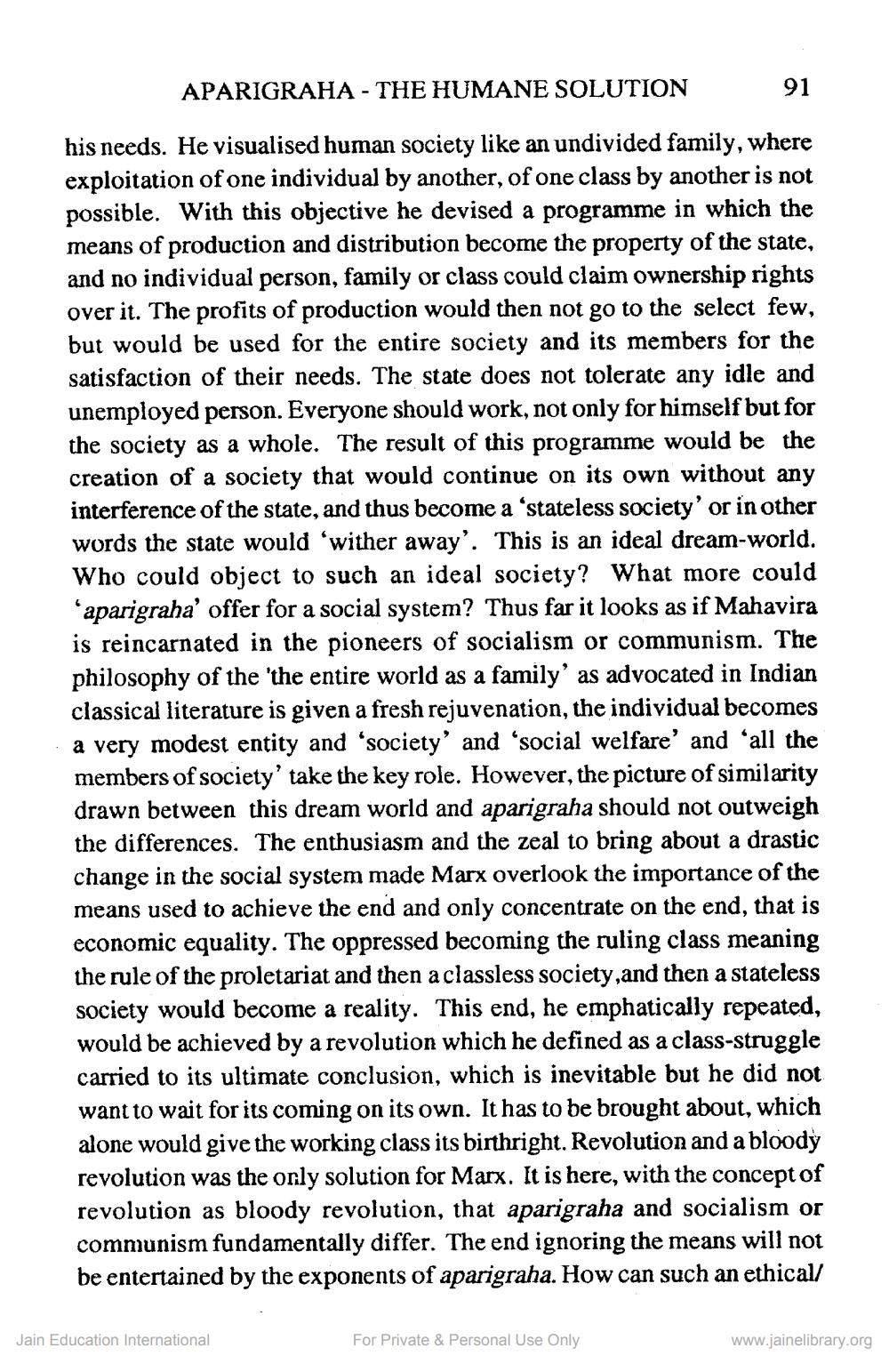________________
APARIGRAHA - THE HUMANE SOLUTION
91
his needs. He visualised human society like an undivided family, where exploitation of one individual by another, of one class by another is not possible. With this objective he devised a programme in which the means of production and distribution become the property of the state, and no individual person, family or class could claim ownership rights over it. The profits of production would then not go to the select few, but would be used for the entire society and its members for the satisfaction of their needs. The state does not tolerate any idle and unemployed person. Everyone should work, not only for himself but for the society as a whole. The result of this programme would be the creation of a society that would continue on its own without any interference of the state, and thus become a 'stateless society' or in other words the state would 'wither away'. This is an ideal dream-world. Who could object to such an ideal society? What more could 'aparigraha' offer for a social system? Thus far it looks as if Mahavira is reincarnated in the pioneers of socialism or communism. The philosophy of the 'the entire world as a family' as advocated in Indian classical literature is given a fresh rejuvenation, the individual becomes a very modest entity and 'society' and 'social welfare' and 'all the members of society' take the key role. However, the picture of similarity drawn between this dream world and aparigraha should not outweigh the differences. The enthusiasm and the zeal to bring about a drastic change in the social system made Marx overlook the importance of the means used to achieve the end and only concentrate on the end, that is economic equality. The oppressed becoming the ruling class meaning the rule of the proletariat and then a classless society,and then a stateless society would become a reality. This end, he emphatically repeated, would be achieved by a revolution which he defined as a class-struggle carried to its ultimate conclusion, which is inevitable but he did not want to wait for its coming on its own. It has to be brought about, which alone would give the working class its birthright. Revolution and a bloody revolution was the only solution for Marx. It is here, with the concept of revolution as bloody revolution, that aparigraha and socialism or communism fundamentally differ. The end ignoring the means will not be entertained by the exponents of aparigraha. How can such an ethical/
Jain Education International
For Private & Personal Use Only
www.jainelibrary.org




